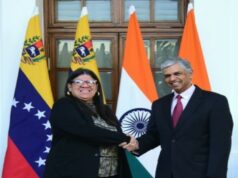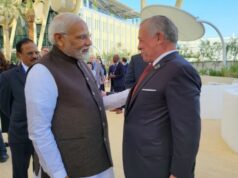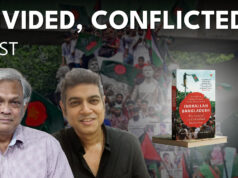Trade specialist and former head of the Centre for WTO Studies Abhijit Das, believes that at a time when Donald Trump is hitting out at the international trading system, two big economies, India and the UK, have come together to finalise a trade deal after often difficult negotiations.
“It gives a glimmer of hope that despite the contemporary problems affecting global trade and trade rules, logical enemies can come together and finalize a trade deal which is in their mutual interest,” said Das.
Although the fine print of the trade deal is yet to be made public, Das pointed out that UK trade tariffs are among the lowest in the world. So the incremental benefit of the UK eliminating tariffs might not appear significant.
This would not apply to textiles where the UK levies tariffs from 11-12%. Once those tariffs come down to zero, it would offer India a significant export advantage and it’s up to India to make good.
“Leather would be another sector where exporters and merchandise trade stand to gain, and gems and jewellery” he said. “We’ve heard that the two countries are finalising or close to finalising an agreement which would allow Indians to work in the UK for up to three years and make social service contribution in one country, India.”
But he warned that going by media accounts, India appears to have made substantial concession in the area of government procurement and while this may not be a blanket carve out for UK suppliers, it remains to be seen how seriously this affects the Make in India programme.
“We are also negotiating with the European Union and what we have offered the UK becomes the floor in the EU negotiations,” he said. “They are likely to expect more and we may have to grant that to our subsequent FTA partners.”
Tune in for more in this conversation with Abhijit Das, former head of the Centre for WTO Studies.
Thirty eight years in journalism, widely travelled, history buff with a preference for Old Monk Rum. Current interest/focus spans China, Technology and Trade. Recent reads: Steven Colls Directorate S and Alexander Frater's Chasing the Monsoon. Netflix/Prime video junkie. Loves animal videos on Facebook. Reluctant tweeter.




